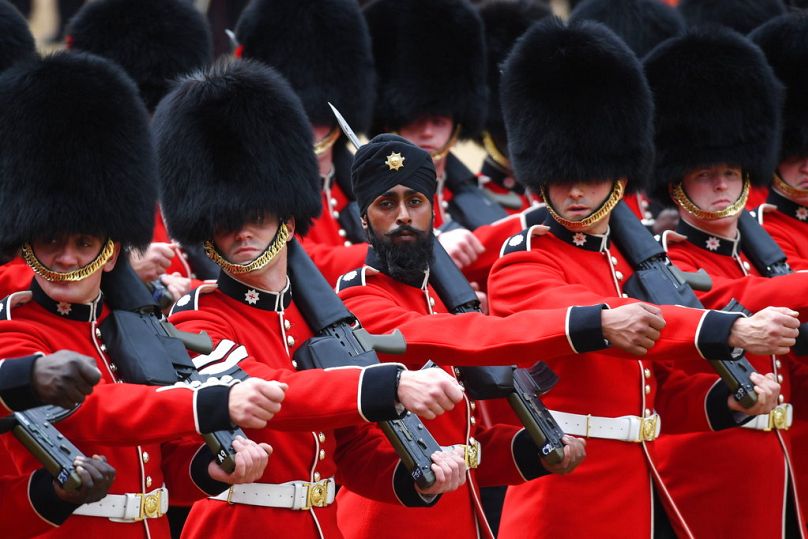The wearing of the hijab has divided Europe for years and it is back in the spotlight again, but the issue is not just confined to Muslim women.
The EU's top court has ruled that government offices across the bloc can prohibit their employees from visibly wearing signs of religious belief.
 ADVERTISEMENT
ADVERTISEMENT
 ADVERTISEMENT
ADVERTISEMENT
The Court of Justice of the European Union (CJEU) said in a statement on Tuesday that it aimed to create a “neutral administrative environment”.
This could in theory mean that Muslim headscarves, Sikh turbans, Christian crosses on pendants or earrings, red Kabbalah string bracelets, even a St. Christopher medallion could be banned for staff.
“Such a rule is not discriminatory if it is applied in a general and indiscriminate manner to all of that administration’s staff and is limited to what is strictly necessary,” the court added.
The ruling came after a Muslim employee of the eastern Belgian municipality of Ans was told she could not wear a headscarf at work.
In the wake of that decision, the municipality altered its terms of employment to prohibit all workers from wearing overt signs of ideological or religious affiliation.
After hearing the case, a court in Liège asked the top court whether this strict neutrality rule imposed by the municipality rose to discrimination contrary to EU law.
In a decision that holds for public sector offices across the EU, the Luxembourg-based court said the rule “may be regarded as being objectively justified by a legitimate aim”.
But it added that each member state had a margin of discretion and an opposite policy authorising the wearing of religious symbols would also be justified.
'Astonishing' decision
According to the Sikh Federation in the UK, this ban is not just about Muslim women and the headscarf. Principal Adviser Dabinderjit Singh told Euronews that "all people of faith will be astonished" by the CJEU's decision.
In the UK there are no bans on headscarves or other religious symbols.
Guidance from the British Government states that employers should be flexible in their approach to religious symbols and dress, and not prevent employees who choose to wear crosses, head coverings or other symbols of their religion unless it directly interferes with their ability to carry out their duties.
In 2015 it was ruled that Sikhs across the UK would no longer face disciplinary action for wearing turbans in workplaces.
"Secular extremism is a massive challenge in many EU countries, especially with the growing strength of the right-wing,” said Singh.
“How can discrimination against people of faith deliver a neutral administrative environment? What comes next – colour of skin or race?”
Singh noted that the EU court's decision says clothing or religious items could be limited except for "what is strictly necessary" - and for practising Sikhs their articles of faith, such as not cutting their hair, or wearing a turban, are "non-negotiable" he explained.
"Although national courts have a 'margin of discretion' Sikhs are a tiny minority in most EU countries and will not be able to take up public sector jobs” if the ruling was used to enact country-level bans, Singh said.
The CJEU has found in favour of banning headscarves on a number of occasions since it first ruled on a case in 2017.
In 2021, it ruled that private sector employers could limit the expression of religious, political or philosophical beliefs when there was a “genuine need” to “present a neutral image towards customers or to prevent social dispute”.
NGO, Human Rights Watch, said in response to the court's decision at that time, that “Muslim women shouldn’t have to choose between their faith and their jobs”.
In France, a ban on face coverings has led to fines for nearly 600 Muslim women, and it has had a strict ban on religious signs in state schools and government buildings since 2004.
Femyso, a pan-European network representing more than 30 Muslim youth and student organisations, told British media that this latest ruling was potentially infringing on the freedom of religion and expression.











